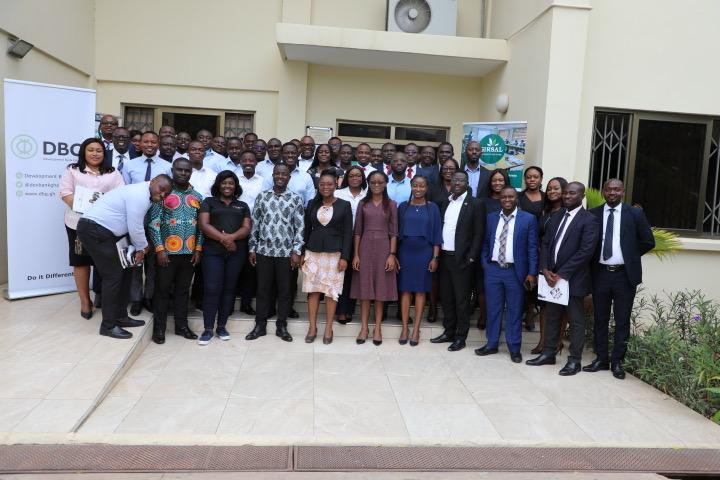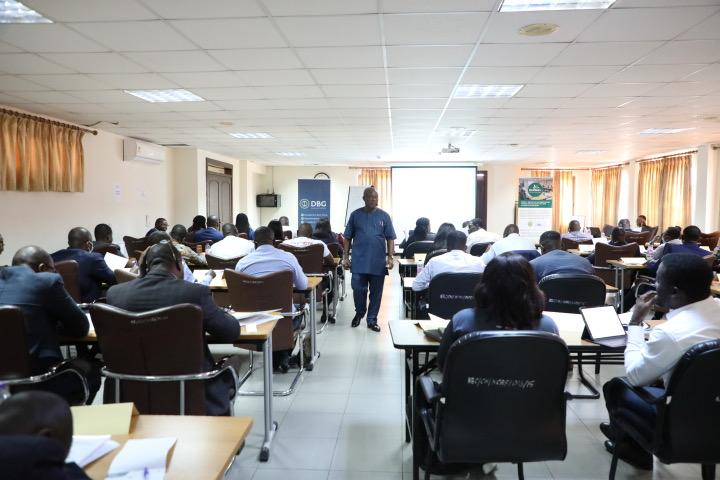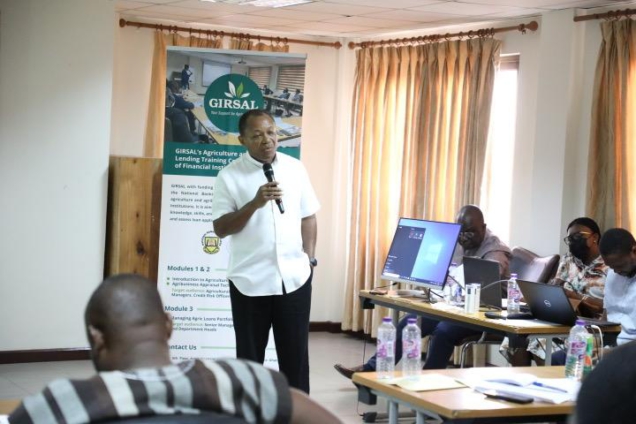The Chief Executive of the Development Bank Ghana, Kwamina Duker, says changing the mindset of players in the financial industry is pivotal to increasing support to the agricultural sector.
According to him, if financial institutions understand the importance of collaborating with players in the agriculture sector, it would be easier to lend to them.
Speaking at a training session organised for financial institutions by Ghana Incentive-based Risk-sharing System for Agricultural Lending, he said, “We’ve got ourselves into a cycle where there’s blame on both sides; the SMEs are blaming the banks and vice versa and there’s no common language."
“However, the way forward is changing mindsets. So, by bringing together the banks, Development Bank Ghana and GIRSAL, we then look at the ecosystem and first ask ourselves, what is causing the risk? Is it the long-term financing? Is that we need SMEs to be more ready? Do they have a good understanding of what banks require to be able to meet loans?”

Mr. Duker believes “it’s not a matter of just giving out the money because that ends with everyone going bankrupt. So, now there’s a mindset of working together, collaborating, and connecting for the common good.”
The Ghana Incentive-based Risk-sharing System for Agricultural Lending (GIRSAL) introduced the Agriculture and Agribusiness Lending Course for financial institutions in 2020 in collaboration with the National Banking College. The programme is to help financial institutions improve their capacity to access agricultural loan applications and manage agribusiness lending.
Chief Executive of GIRSAL, Kwesi Korboe, reiterated his outfit’s commitment to growing the agriculture sector.
He indicated that his outfit has identified three issues that need immediate attention.

“Recently we added advocacy to our mandates where we’re trying to look at the entirety of risk in agric financing. In fact, for this year, we have identified three critical issues; policy on exports at the Tema Port, agric production and the issue of imported chicken. These are some of the things we’re focusing on to help make recommendations to government that these challenges need to be addressed to fully realise the potentials of the sector,” he stated.
55 participants from 12 financial institutions attended the training session.
Latest Stories
-
We didn’t sneak out 10 BVDs; they were auctioned as obsolete equipment – EC
2 hours -
King Charles to resume public duties after progress in cancer treatment
3 hours -
Arda Guler scores on first start in La Liga as Madrid beat Real Sociedad
3 hours -
Fatawu Issahaku’s Leicester City secures Premier League promotion after Leeds defeat
3 hours -
Anticipation builds as Junior Speller hosts nationwide auditions
3 hours -
Etse Sikanku: The driver’s mate conundrum
4 hours -
IMF Deputy Chief worried large chunk of Eurobonds is used to service debt
4 hours -
Otumfuo Osei Tutu II celebrates 25 years of peaceful rule on golden stool
4 hours -
We have enough funds to pay accruing benefits; we’ve never missed pension payments since 1991 – SSNIT
5 hours -
Let’s embrace shared vision and propel National Banking College – First Deputy Governor
5 hours -
Liverpool agree compensation deal with Feyenoord for Slot
5 hours -
Ejisu by-election: There’s no evidence of NPP engaging in vote-buying – Ahiagbah
6 hours -
Ejisu by-election: Independent ex-NPP MP’s campaign team warns party against dubious tactics
6 hours -
ZEN Petroleum supports Tse-Addo Future Leaders School
7 hours -
NPP must win back Adentan seat in 2024 polls – Obeng Fosu
7 hours

